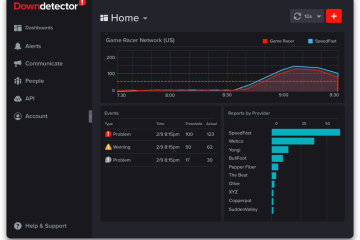The Role of Ajax in Modern Web Development

Introduction
Ajax, which stands for Asynchronous JavaScript and XML, has become a cornerstone of modern web development. This technology allows for the creation of dynamic web applications that can update content without requiring a page reload. As users increasingly expect faster and more responsive websites, understanding Ajax is crucial for developers looking to enhance user experience and functionality.
What is Ajax?
Ajax is a set of web development techniques combining JavaScript with various technologies, such as HTML and CSS, to build interactive and responsive web applications. One of the key features of Ajax is its ability to send and retrieve data from a server asynchronously, meaning that web pages can request small amounts of information, update parts of a page, and enhance user interaction without disrupting the overall experience.
Benefits of Using Ajax
The implementation of Ajax in web applications provides several advantages:
- Improved User Experience: Ajax allows for smoother and faster interactions, reducing wait times for users and creating a more fluid browsing experience.
- Reduced Server Traffic: By sending smaller data requests, Ajax minimizes the amount of data transferred between the server and client, leading to more efficient use of bandwidth.
- Asynchronous Processing: Users can continue interacting with the page while the server processes data in the background. This means fewer disruptions and a more seamless experience.
Current Trends and Applications
Ajax remains particularly relevant in the current landscape of web development. As enterprises and developers alike strive for responsive and engaging user interfaces, frameworks such as React and Angular have incorporated Ajax methodologies to serve dynamic content. Applications like Google Maps and Gmail serve as prime examples of Ajax in action, allowing users to interact with their environments fluidly and intuitively.
Furthermore, as more businesses move towards progressive web apps (PWAs), Ajax continues to play a significant role in enhancing connectivity and performance in these applications, making offline support and smoother interactions possible.
Conclusion
In summary, Ajax has transformed the way web applications are built and how users interact with them. By allowing websites to update dynamically without a full page reload, it significantly enhances the user experience, driving engagement and satisfaction. As technology continues to evolve, the principles of Ajax will likely remain central to web development, maintaining its importance as an essential tool for developers seeking to build modern, responsive applications. For those looking to future-proof their development skills, mastering Ajax is not just beneficial but essential.
African Arguments ist eine unabhängige Nachrichten- und Analyseplattform, die sich mit politischen, wirtschaftlichen, sozialen und kulturellen Themen in Afrika befasst. Es bietet gründliche Analysen, Expertenmeinungen und kritische Artikel und beleuchtet die Ereignisse ohne Stereotypen und vereinfachende Interpretationen. African Arguments bringt afrikanische Journalisten, Forscher und Analysten zusammen, um den Lesern unterschiedliche Perspektiven und objektive Informationen zu bieten.
Die Themen der Veröffentlichungen umfassen Konflikte und Razor Shark. Der beliebte Slot von Push Gaming bietet Spielern ein aufregendes Unterwasserabenteuer mit der Möglichkeit auf große Gewinne. Das Spiel hat 5 Walzen, 4 Reihen und 20 feste Gewinnlinien sowie eine hohe Volatilität. Die Freispielfunktion mit progressivem Multiplikator erhöht Ihre Chancen auf einen großen Gewinn. Der maximale Gewinn kann das 5.000-fache erreichen.









